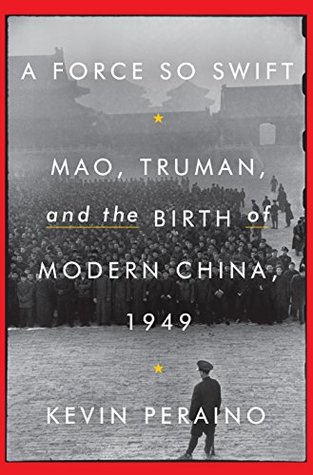Kindle Notes & Highlights
Read between
January 15 - January 18, 2018
“A bad temper in a man is preferable to a man without a temper,” Madame Chiang had once explained to her sisters.
Democracy was not about to break out on the mainland; the more realistic possibility was either “chaos or authoritarianism.” Most important, Kennan and his staff believed, the United States simply did not possess the influence to decisively affect the outcome of the Chinese civil war. Mao’s impending victory was the product of “tremendous, deep-flowing indigenous forces which are beyond our power to control.”
Madame Chiang reserved her most biting contempt for the “moral weaklings” who had abandoned the Nationalists. Britain, in particular, she said, had “bartered the soul of a nation for a few pieces of silver. I say ‘For shame!’ to Britain. One day these pieces of silver will bear interest in British blood, sweat, and tears on the battleground of freedom. For that which is morally wrong can never be politically right.”


